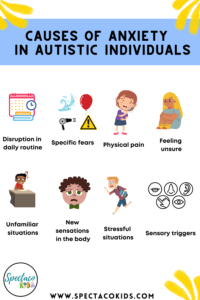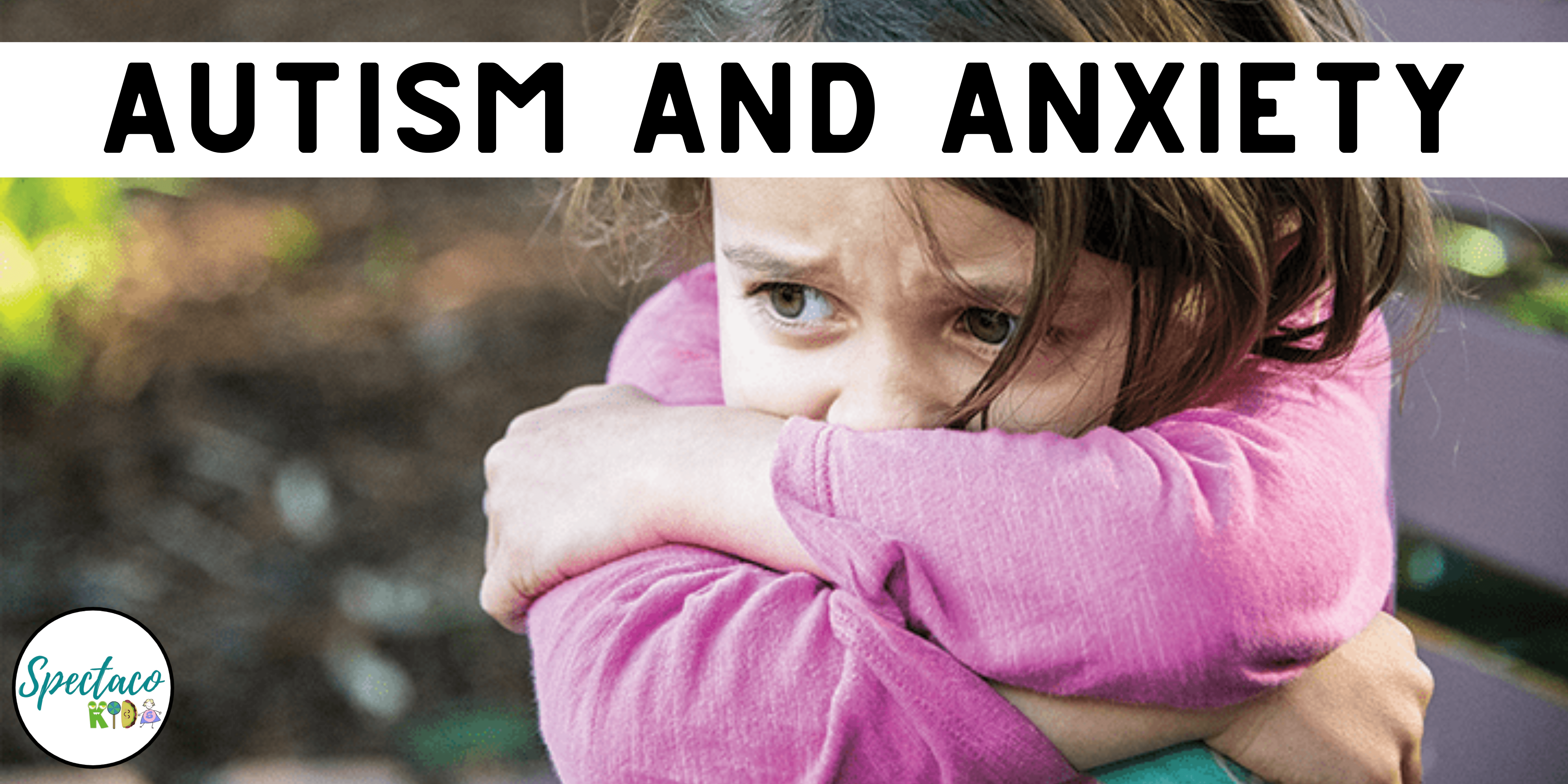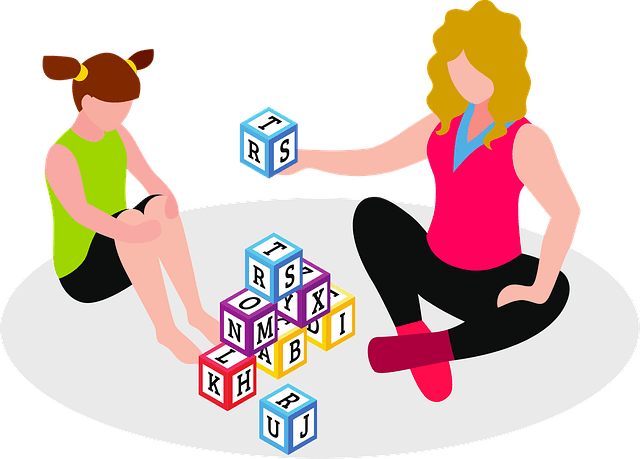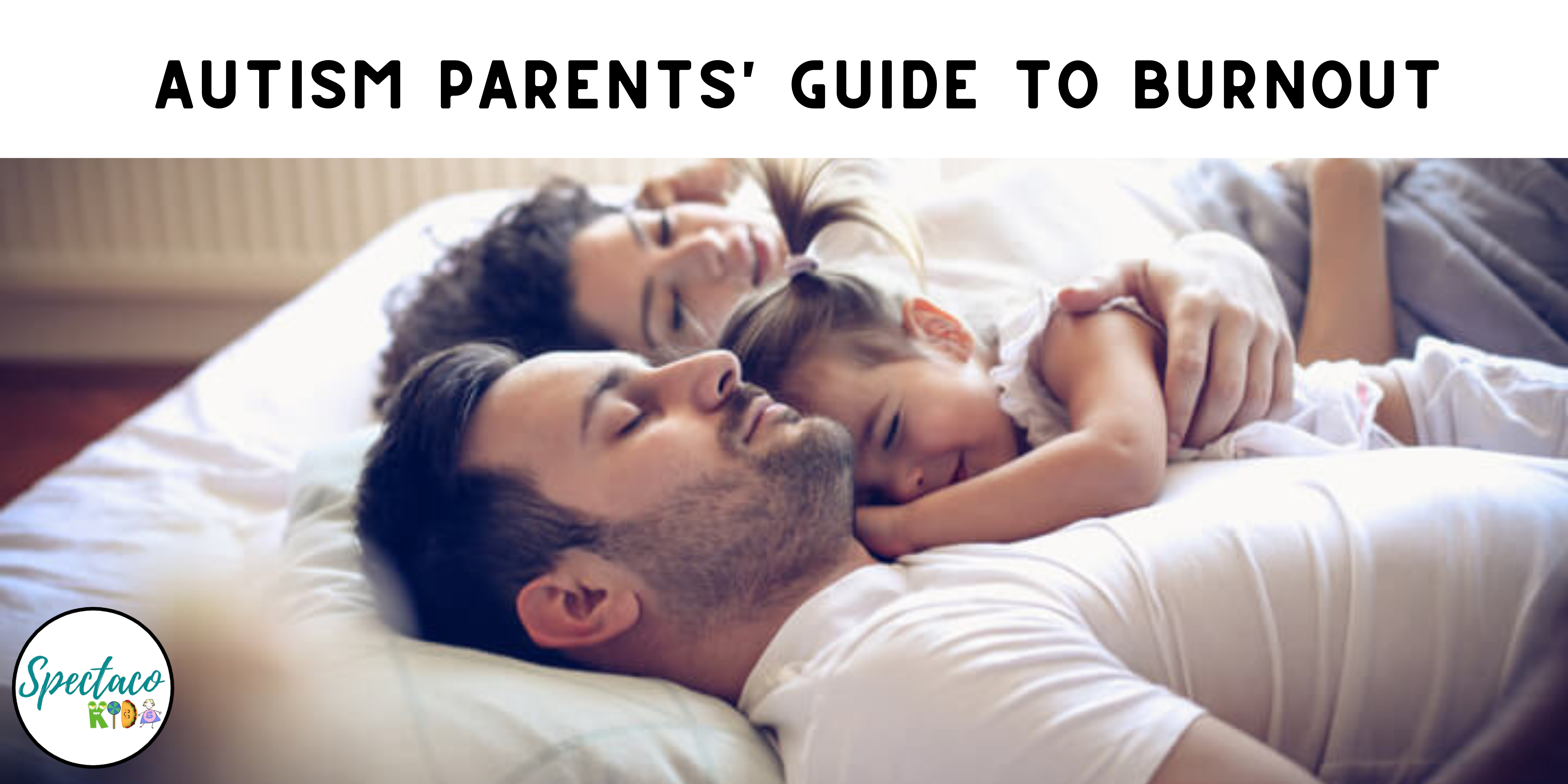It is a known fact that not all people on the spectrum are affected by autism in the same way. Hence, it is very important to understand the relationship between autism and anxiety, so that we are better prepared to help those in need.
What Are The Different Types Of Anxiety In Autism and How Do They Arise?
There are 4 main types of anxiety commonly found in people on the spectrum. These are listed below:
- Generalized Anxiety Disorder or Obsessive Compulsive Disorder (OCD)
- Fear of Open Spaces and Crowds (Agoraphobia)
- Fear of Social Situations (Social Anxiety)
- Separation Anxiety
- Other Specific Fears (Phobia)
Obsessive Compulsive Disorder (OCD):
OCD may cause autistic people to develop a lot of unwanted thoughts and is often found in conjunction with autism. Whilst repetitive behaviors are a major symptom of ASD, OCD is triggered by anxiety and becomes a coping mechanism for people on the spectrum to deal with the situation at hand.

Fear of Open Spaces and Crowds (Agoraphobia):
Agoraphobia is anxiety that develops when in a public space or amidst large crowds, which can become potentially suffocation and difficult to run away from, especial if you have ASD. Many times, it can be difficult to evade these places or crowds, thus, making it more worrisome for people on the spectrum. Ultimately, in such times they might suffer from a panic attack or similar symptoms.
Fear Of Social Situations (Social Anxiety):
Fear of communication and socializing with new people can make social settings particularly awkward for autistic people, especially if they are experiencing high functioning autism. Most autistic people would avoid such situations because they cannot readily converse with people or make eye contact, thus, sometimes causing them to be bullied.
Separation Anxiety:
Parents of autistic children spend a lot of time helping their child, forging a deep bond with them. Anything that that threatens this bond can around severe feelings of anxiety in autistic people as they would not want to be separated from their parents under any costs.
Other Specific Fears (Phobia):
Other phobias can stir up intense fear in people on the spectrum, even though that thing may not pose any danger. An example of this is loud music, insects or even the alarm bell at school! These symptoms usually arise early in ASD due to an over responsiveness to sensory simulation.
Why Do Autistic People Experience Anxiety?
Some of the causes of anxiety in autistic people are identified below:
- Disruptions in the daily routine
- New, unfamiliar social situations that may arise
- New sensations in the body that the child, teen, or adult has not experienced before
- Feeling unsure about what people around them are thinking or feeling
- Their own emotions, considerably uncomfortable physical symptoms that arise because of feelings of concern and worry
- Sensory triggers, for example, certain unpleasant sounds, smells, or tastes
- Thinking about specific situations like school or work for example
- Specific fears like fear of certain animals, sharp objects etc.

How Can We Recognize When Someone Is Experiencing Autism?
Largely, certain physical and behavioral patterns can help identify when someone is experiencing autism. Knowing what these are can help those around to be aware and act in time.
Physical Signs:
- fast heartbeat
- shortness of breath
- feeling distressed or in panic
- shivering or hands shaking
- sweating and feeling sick
- fatigue
- trouble concentrating on things
- muscle tension
- disturbed sleep

Behavioral Signs:
- constant need for reassurance
- avoiding situations and objects, for example hesitant to go to school
- tantrums, meltdowns, or sudden outbursts
- overthinking situations
- showing a strong need to follow the set routine, resistance to change
- obsessive routine or playing patterns
- running away from situations or people
- inflicting self – harm
What Are Some Calming Strategies To Help Autistic Children When They Are Anxious?
Some instant relief methods to help your child calm down in stressful situations are listed below. You and your child can practice these together:
- counting to 10 slowly
- taking 5 deep breaths
- running around the yard
- doing 30 jumps on the trampoline
- looking at their favorite things or toys
- reading a book, they like
- shutting their eyes for a bit
- going to a quiet part of the house
How Else Can I Help My Child Manage Their Anxiety?
Despite calming strategies listed above, there are other ways to deal with your child’s anxiety, which are commonly sued by psychologists. These can be found below:
- Cognitive Behavior Therapy – this helps children to develop skills to help them change their perspective about situations that make them anxious
- Enrolling in therapies and supports that use step by step methods to help expose children to face their fears, for example, the “Stepladder Approach”
- Social stories are a useful tool to help prepare your child for new situations that generally worry them
- Relaxation training can help your child relax when they are experiencing anxiety
- Medication is yet another way to deal with anxiety, however, this method is only recommended when anxiety affects your child daily and none of the strategies listed above seem to work
How Can Parents Offer Their Child More Support?
Parents play a vital role in their children’s lives, which is why children are more responsive to their care and treatment than anyone or anything else. Parents of autistic children must play a greater role by becoming their child’s mentor, therapist, and friend to help their child to their maximum potential. To do this, they must exercise some things:
- Encourage their child for their good behavior or effort and in some cases, even reward them to motivate them
- They must learn more about their child’s behavioral patterns so they can be addressed with the correct treatment
- Boosting their child’s confidence in their ability to cope with stressful situations can be of great help to the child
- Work together with their spouse and family to help support their child
- Discuss and share coping strategies with those around them to spread awareness, so that in their absence, there is always someone present to manage the situation if it unexpectedly arises.

Overall, anxiety can be a quite concerning because it hampers with the child’s ability to communicate effectively and be comfortable in their surroundings. However, these indicators and tips for parents can be of great help if you want to be help your child as much as possible.




I like this web site so much, saved to my bookmarks. “I don’t care what is written about me so long as it isn’t true.” by Dorothy Parker.
Super Mario Rosalina Dress Green Cosplay Costume
Some truly quality content on this web site, saved to bookmarks.
**mind vault**
mind vault is a premium cognitive support formula created for adults 45+. It’s thoughtfully designed to help maintain clear thinking
**gl pro**
gl pro is a natural dietary supplement designed to promote balanced blood sugar levels and curb sugar cravings.
**sugarmute**
sugarmute is a science-guided nutritional supplement created to help maintain balanced blood sugar while supporting steady energy and mental clarity.
**vitta burn**
vitta burn is a liquid dietary supplement formulated to support healthy weight reduction by increasing metabolic rate, reducing hunger, and promoting fat loss.
**synaptigen**
synaptigen is a next-generation brain support supplement that blends natural nootropics, adaptogens
**glucore**
glucore is a nutritional supplement that is given to patients daily to assist in maintaining healthy blood sugar and metabolic rates.
**prodentim**
prodentim an advanced probiotic formulation designed to support exceptional oral hygiene while fortifying teeth and gums.
**nitric boost**
nitric boost is a dietary formula crafted to enhance vitality and promote overall well-being.
**wildgut**
wildgutis a precision-crafted nutritional blend designed to nurture your dog’s digestive tract.
**sleep lean**
sleeplean is a US-trusted, naturally focused nighttime support formula that helps your body burn fat while you rest.
**mitolyn**
mitolyn a nature-inspired supplement crafted to elevate metabolic activity and support sustainable weight management.
**yu sleep**
yusleep is a gentle, nano-enhanced nightly blend designed to help you drift off quickly, stay asleep longer, and wake feeling clear.
**zencortex**
zencortex contains only the natural ingredients that are effective in supporting incredible hearing naturally.
**breathe**
breathe is a plant-powered tincture crafted to promote lung performance and enhance your breathing quality.
**prostadine**
prostadine is a next-generation prostate support formula designed to help maintain, restore, and enhance optimal male prostate performance.
**pinealxt**
pinealxt is a revolutionary supplement that promotes proper pineal gland function and energy levels to support healthy body function.
**energeia**
energeia is the first and only recipe that targets the root cause of stubborn belly fat and Deadly visceral fat.
**prostabliss**
prostabliss is a carefully developed dietary formula aimed at nurturing prostate vitality and improving urinary comfort.
**boostaro**
boostaro is a specially crafted dietary supplement for men who want to elevate their overall health and vitality.
**potent stream**
potent stream is engineered to promote prostate well-being by counteracting the residue that can build up from hard-water minerals within the urinary tract.
**hepatoburn**
hepatoburn is a premium nutritional formula designed to enhance liver function, boost metabolism, and support natural fat breakdown.
**hepato burn**
hepato burn is a potent, plant-based formula created to promote optimal liver performance and naturally stimulate fat-burning mechanisms.
**flow force max**
flow force max delivers a forward-thinking, plant-focused way to support prostate health—while also helping maintain everyday energy, libido, and overall vitality.
**neurogenica**
neurogenica is a dietary supplement formulated to support nerve health and ease discomfort associated with neuropathy.
**cellufend**
cellufend is a natural supplement developed to support balanced blood sugar levels through a blend of botanical extracts and essential nutrients.
**prodentim**
prodentim is a forward-thinking oral wellness blend crafted to nurture and maintain a balanced mouth microbiome.
**revitag**
revitag is a daily skin-support formula created to promote a healthy complexion and visibly diminish the appearance of skin tags.
Yo, mx777casino is where it’s at! I’ve been hitting it up lately, and the games are tight. Solid selection and the payouts ain’t too shabby either. Give it a whirl! Check it out here: mx777casino
phtaya06 https://www.phtaya06y.com
taya333 https://www.taya333.org
pesomaxfun https://www.elpesomaxfun.com
phtaya01 https://www.phtaya01.org
kubet chính là bến đỗ an toàn nhất cho anh em cược thủ Việt. Uy tín – Bảo mật – Nhanh chóng là tôn chỉ hoạt động của chúng tôi. TONY01-16
**neurosharp official**
Neuro Sharp is an advanced cognitive support formula designed to help you stay mentally sharp, focused, and confident throughout your day.